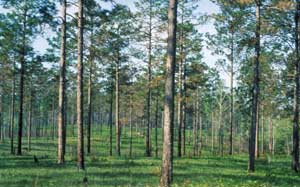
Do woodworkers have a responsibility to buy and use woods that have been responsibly harvested from sustainable forests?
Michael Dresdner: Do woodworkers have a responsibility to drive a sensibly sized car and eschew those house-on-wheels sized SUV’s? Considering the amount of wood most hobby woodworkers use vs. the amount of driving they do, this will doubtless have vastly more impact on the world than your question. And even your question assumes that you can actually know if the wood you are buying is in fact ‘responsibly harvested’ and not just advertised that way because that is what you want to hear. Or did you forget we are in the midst of a flurry of ‘true’ political promises being made during this presidential year campaign? Sorry, but even we tree-huggers are entitled to a bit of skepticism.
Ellis Walentine: Ah, the environmental issue. This is a question every woodworker has todecide for himself. Evidence abounds that tropical forests ? and temperate ones, for that matter ? are being logged faster than they can replenish themselves and that ecosystems are being disrupted all over the world due to overpopulation, slash-and-burn agriculture and a host of other environmental pressures.
This loss of forest land has implications far more severe than just higher lumber prices. According to many concerned scientists, our own long-term survival may also be in jeopardy if we don’t figure out how to manage the world’s ecosystems better.
Ian Kirby: The responsibility is yours to decide. Will your decision make a difference? If you do use sustainable material, it’s somewhat quantifiable. But the quantity of wood used by small shops compared to industry at large is minute. So until industry and its associations come to grips with the problem, it will remain a problem.
Rob Johnstone: If not the wood users, then who? I have a personal responsibility for the environment in all aspects of my life: the car I buy, the plumbing I choose, the aerosols I select, and whether to recycle when I have opportunity to. So yes, woodworkers do need to make every effort to buy wood that has been responsibly harvested.
The question then becomes: how do you know if the wood you are purchasing is harvested in such a way? There are groups with certification programs which identify wood for the end user; SmartWood is one such group.This is not to say the wood being sold without certification is being harvested incorrectly. That’s the rub. The wood being sold at your neighborhood lumberyard may be fine in an environmental sense … but how do you know? That is why each of us needs to take the responsibility on our own shoulders. If not me, then who?





